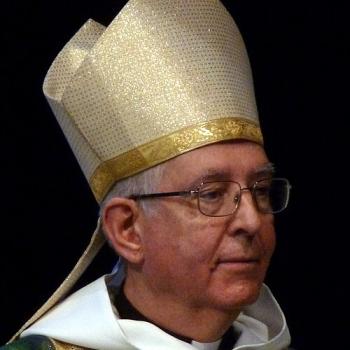
In most religions, marriage is deeply connected to ritual, and most religions today practice monogamy, marriage to one spouse. According to the Pew Research Center, polygamy—marriage to multiple spouses concurrently—is rare, even in religious contexts where it is permitted. Some anthropologists believe that polygamy has been the norm through human history, though today polygamous marriages are more often responses to cultural attitudes, mortality rates, and agricultural needs than religious writings or teachings.
While there are many biblical stories of patriarchs and kings who had multiple wives (Abraham, Jacob, David, Solomon), polygamy was probably never the norm in Jewish traditions and has been prohibited since the Middle Ages. The Christian community took a strong stance against polygamy as early as the time of the apostle Paul. That said, as Christianity spread, it came into greater contact with polygamous societies that were reluctant to give up their cultural marriage preferences. There continues to be tension between traditional Christian doctrine, which forbids polygamy, and cultural traditions in Sub-Saharan Africa where polygamy is not unusual.
Islam is the only major world religion that still openly permits men to take multiple wives. That said, it is allowed, but not usually encouraged. Muslim men can marry up to four wives, though Muslim women can never marry multiple husbands. The acceptance of polygamy is reflected in the laws of most Muslim-majority countries. While it is rare in most Muslim-majority countries of the Middle East, some of the countries in Western and Sub-Saharan Africa report up to 30% of the population in polygamous marriages.
In most Buddhist traditions, marriage is regarded as a purely secular affair. As such, Buddhism has never been as closely tied with any sort of marital sanction or prohibition. Instead, Buddhist marriage customs depend almost entirely on local traditions. This means that some Buddhist areas have commonly practiced monogamy, while others have favored forms of polygamy. Myanmar, for example, did not outlaw the practice of having multiple wives until 2015. Similarly, Tibet was known for practicing polyandry, the practice of one wife having multiple husbands. It is now technically outlawed, but unofficial polyandry remains the norm in some rural areas. This practice can also be found in parts of the Indian subcontinent, including Bhutan and Ladakh.
Polygamy is described and mentioned in numerous Hindu texts, and was a common practice among certain circles of the Indian elite until the 20th century, when India’s Parliament banned it for all Hindus. Polygamy in Hinduism was often connected to a man’s caste. Members of higher castes were allowed more wives than those of lower castes. As with many cultures that practice polygamy, the first or eldest wife was allotted special duties and powers over her husband’s other wives. The exception to this rule was if the man’s wives were from different castes. In that case, the woman from the highest caste would be the chief consort and the wife who would perform religious rites with her husband.
In the United States, polygamy is most closely associated with the early years of The Church of Jesus Christ of Latter-day Saints, known as the Mormon church. Joseph Smith, the founder of the LDS Church, had multiple wives, as did many of the other leaders. However, Smith's marriages were mostly not relationships in which cohabitation occurred. By 1852, plural marriage had became a fairly common practice in most Mormon communities. Some estimate that 20-25% of Mormon adults were in polygamous relationships by the latter part of the 19th century. Other studies suggest the numbers were much lower. The practice was finally condemned in 1890 by Wilford Woodruff, the President of the Church at that time and, in 1904, The Church of Jesus Christ of Latter-day Saints began excommunicating anyone who practiced plural marriage.
Read more about marriage from the perspective of Islam here.
3/14/2023 7:06:31 PM










